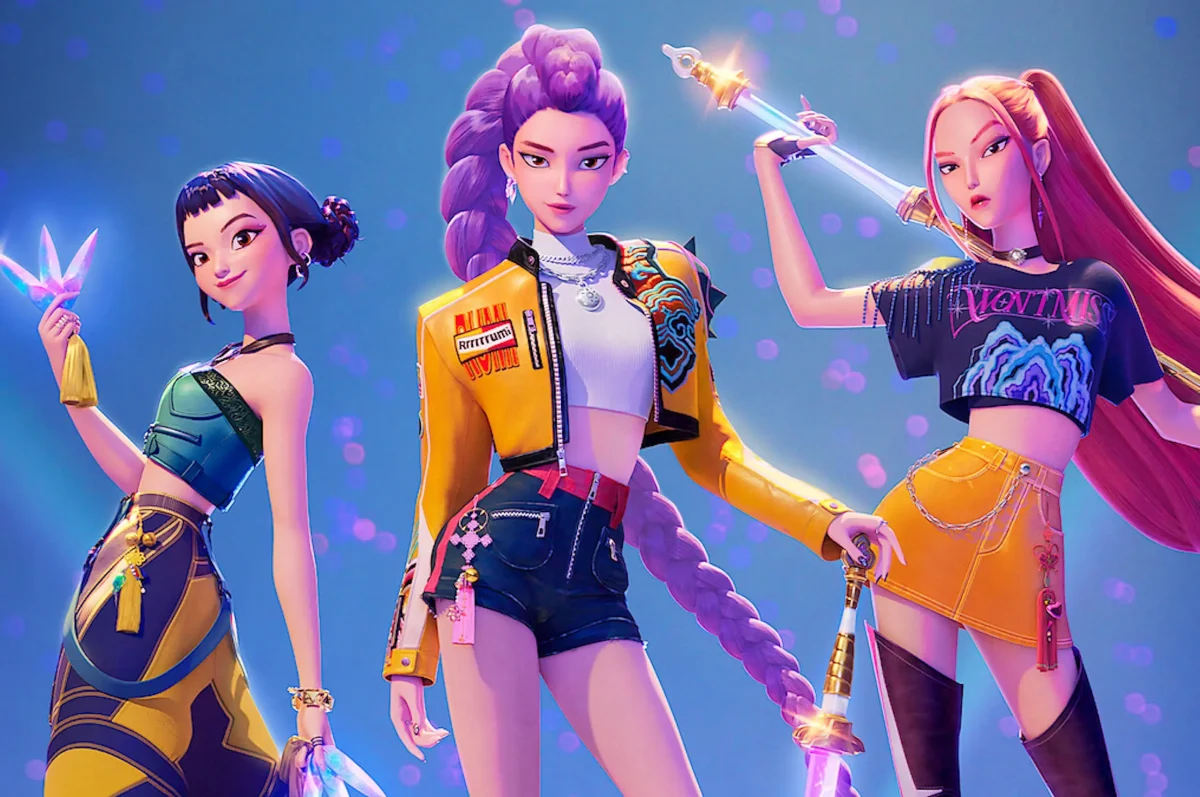Netflix has newly released its animated film, “K-pop Demon Hunters,” an exciting animation about K-pop idols and their lyrical battles with demons. The film, while initially thought of as another cheesy children’s movie, quickly became a global sensation, topping international charts at a record pace.
Critics discovered the unique appeal that the movie offered, as Sony Pictures Entertainment, the movie’s studio, blends bold colors and distinctive storylines with catchy soundtracks that top music charts. Movie critics have given the movie overall positive reviews, with commendations for its unique soundtrack. For example, Mattie Lucas from Rotten Tomatoes said, “A vibrantly colored tale of resilience and self-discovery, filled with indelible images, compelling characters, and a pulsing soundtrack that is nothing but bop after bop.”
In addition to achieving top marks on movie charts, the soundtrack set groundbreaking records, with many of the songs reaching the Billboard Top 100. Specifically, songs from the two main idol groups featured in the film, Saja Boys and Huntrix, vied for the top spot on the Billboard Soundtracks Chart. In the end, Huntrix’s “Golden” climbed to first place, resulting in Huntrix becoming the first-ever K-pop girl group to set such a record. The song had more than 430 million streams on Spotify as of Aug. 28, and the streams are increasing every day.
“My favorite song was ‘Golden’ by Huntrix—I’ve been listening to it nonstop since I watched the movie,” Bernard Chang (10), Huntrix superfan, said. “I really liked the vocals and the artistic designs of the characters during the songs. There was just something very special about the way these animated figures presented themselves. I could feel a genuine change in the way I perceived animations.”
With a cast of numerous K-pop greats, such as members from JYP Entertainment’s TWICE and The Black Label’s Teddy Park, the songs had high expectations from both critics and listeners. The movie’s choreography, songs, and high quality helped spread K-pop culture worldwide, while successfully topping music charts and setting new standards for the genre.
“I did not expect the songs to be this successful when I first listened to them.” Russell Jin (12), K-pop fanatic, said. “But retrospectively, as some of the songs even have dances associated with them, it kinda makes sense that they were propagated through social media and generated so much viral interest.”
The movie generated large amounts of interest for K-culture worldwide, which led to a boost in tourism. The constant depictions of Korean cultural items in the movie, such as Hanboks, Korea’s traditional garment, and kimbap, one of the most popular Korean day-to-day food items, piqued enough interest in foreigners to promote travel.
“My friends from countries around the world, such as Japan, told me that they had enjoyed both the songs and the movies,” Ryan Cha (10), movie enthusiast, said. “They said that the movie made Korean culture look very appealing in a friendly manner, and it promoted them to take an interest in travelling to Korea to experience the culture they saw in the movie firsthand. I was glad to see that my foreign friends enjoyed Korean culture so much.”
Overall, the movie has greatly boosted Korea’s appeal to global audiences, providing K-culture an international stage through the worldwide platform, Netflix. K-pop Demon Hunters has helped prove that K-pop is not a momentary trend, but an art form that is here to stay.


